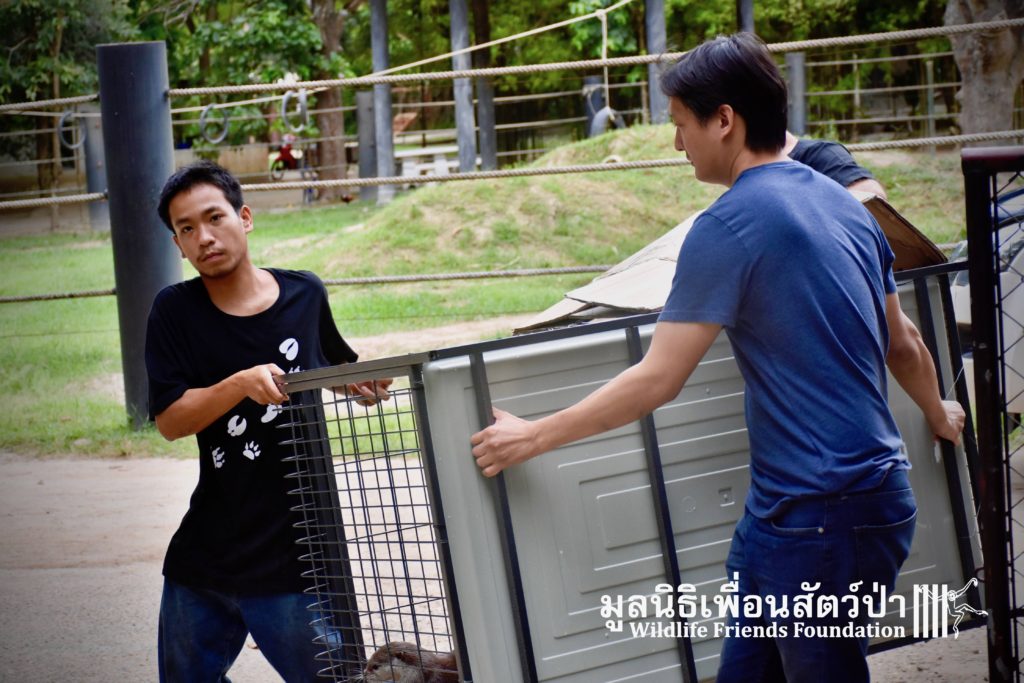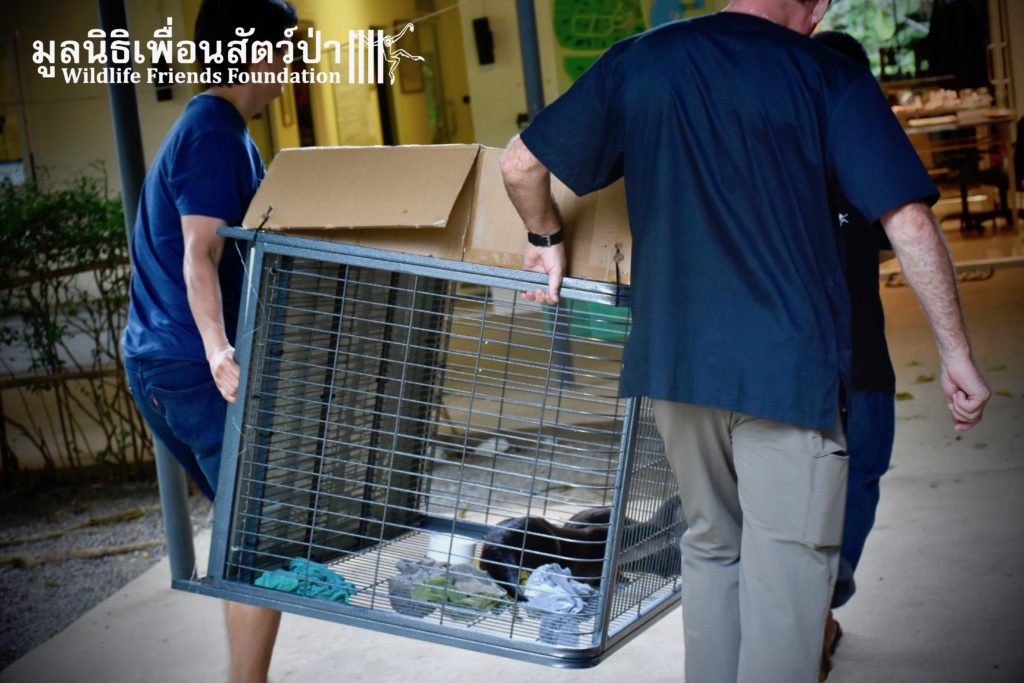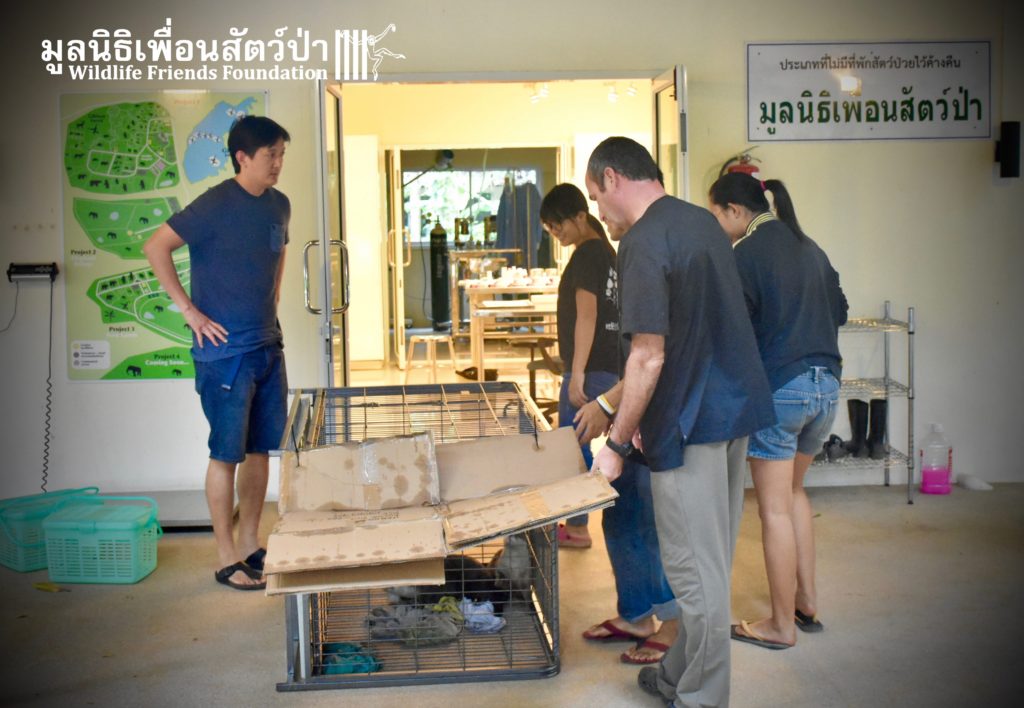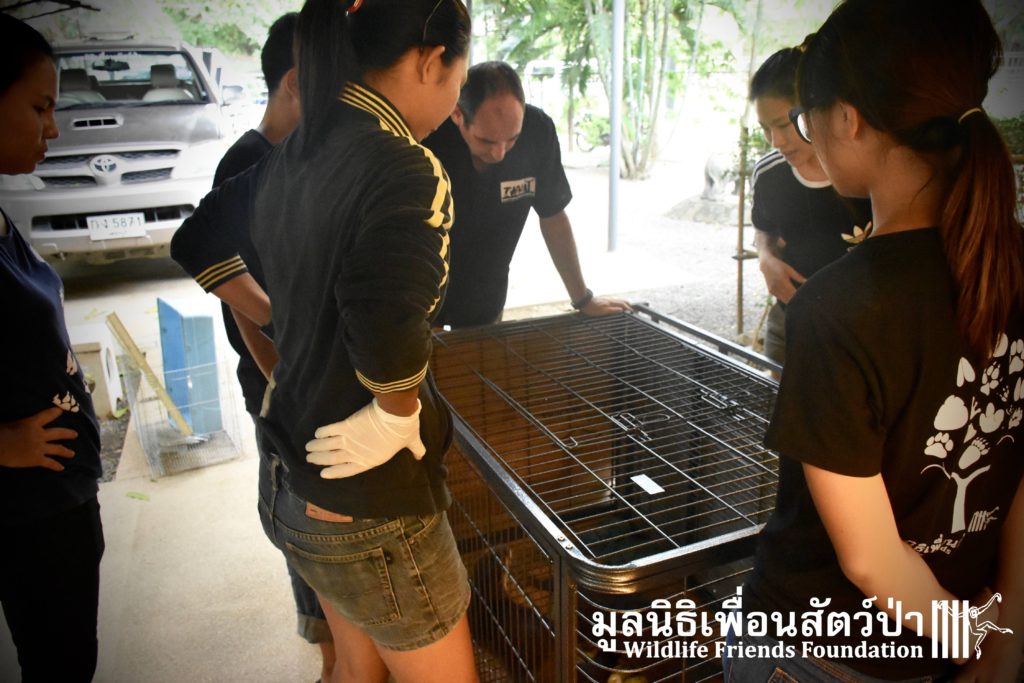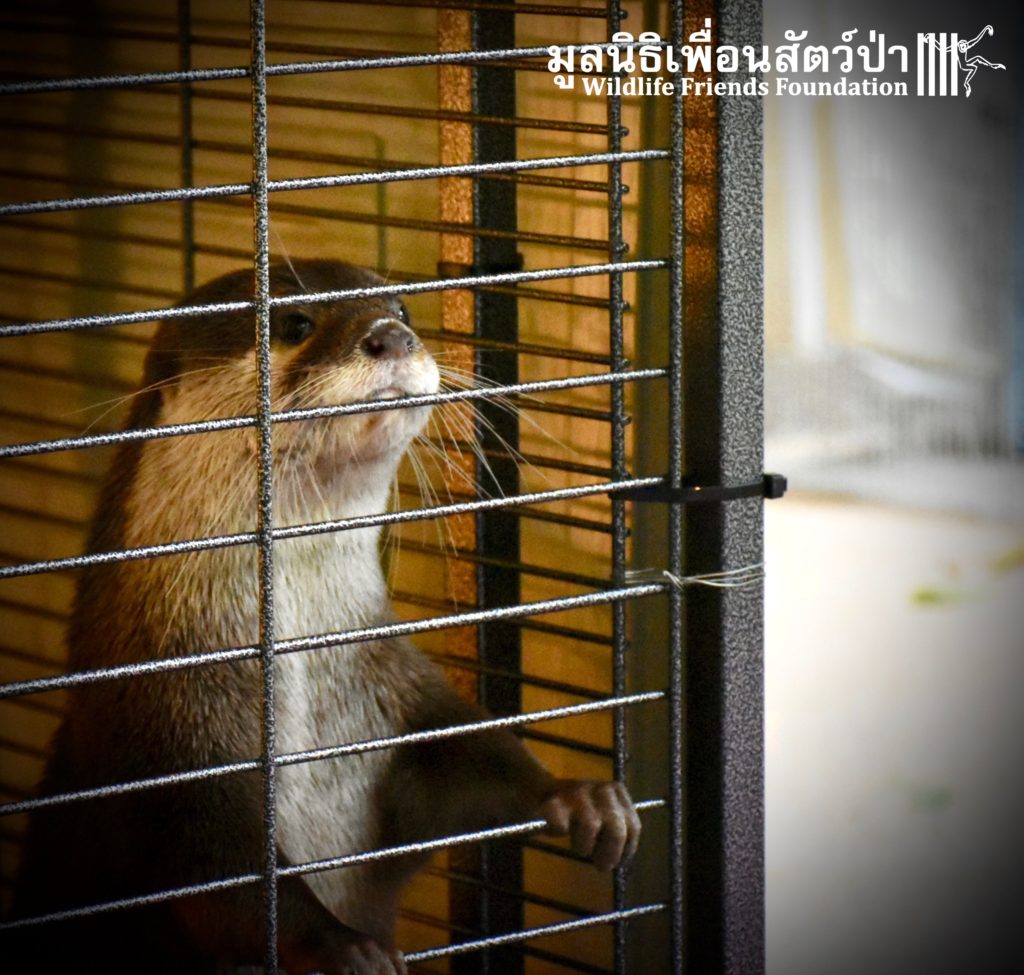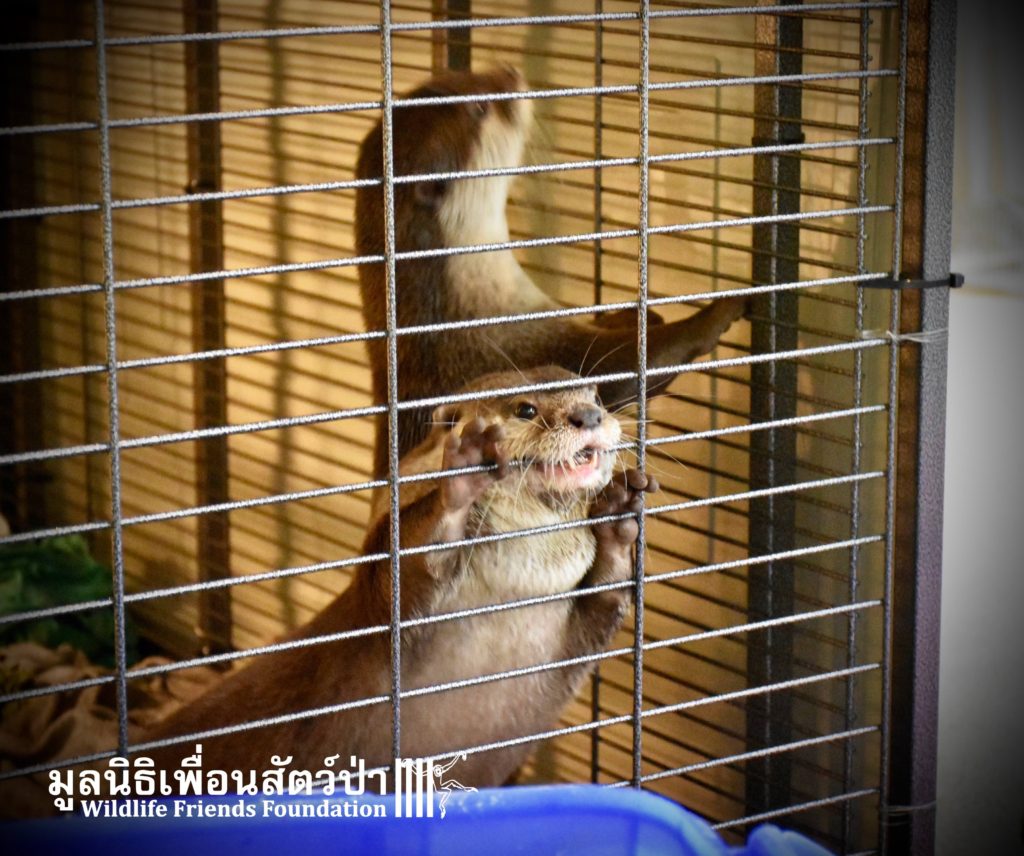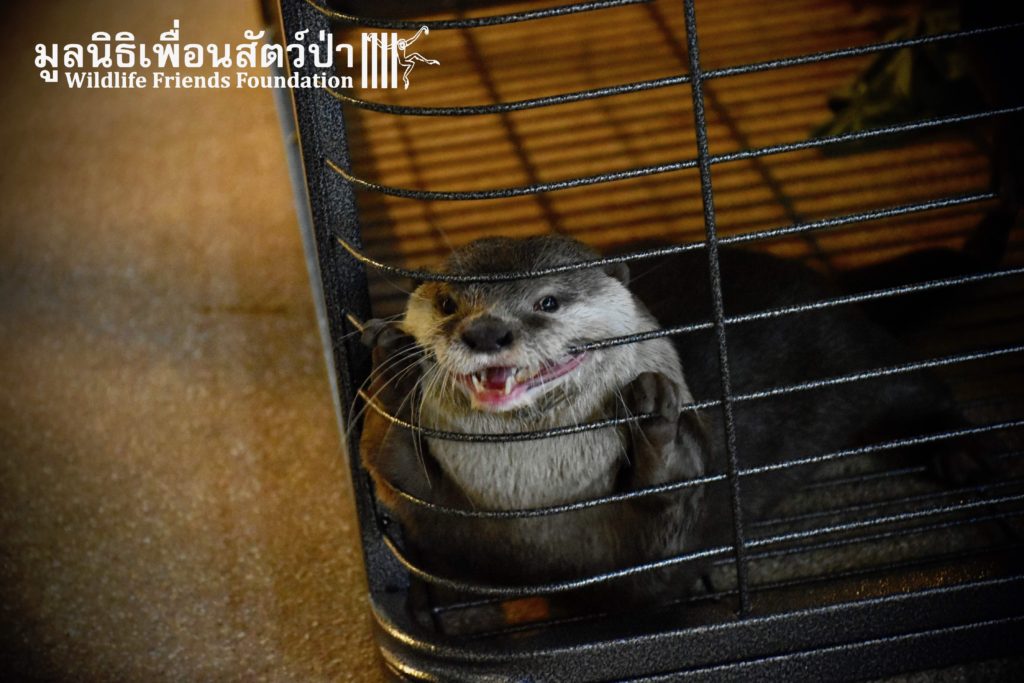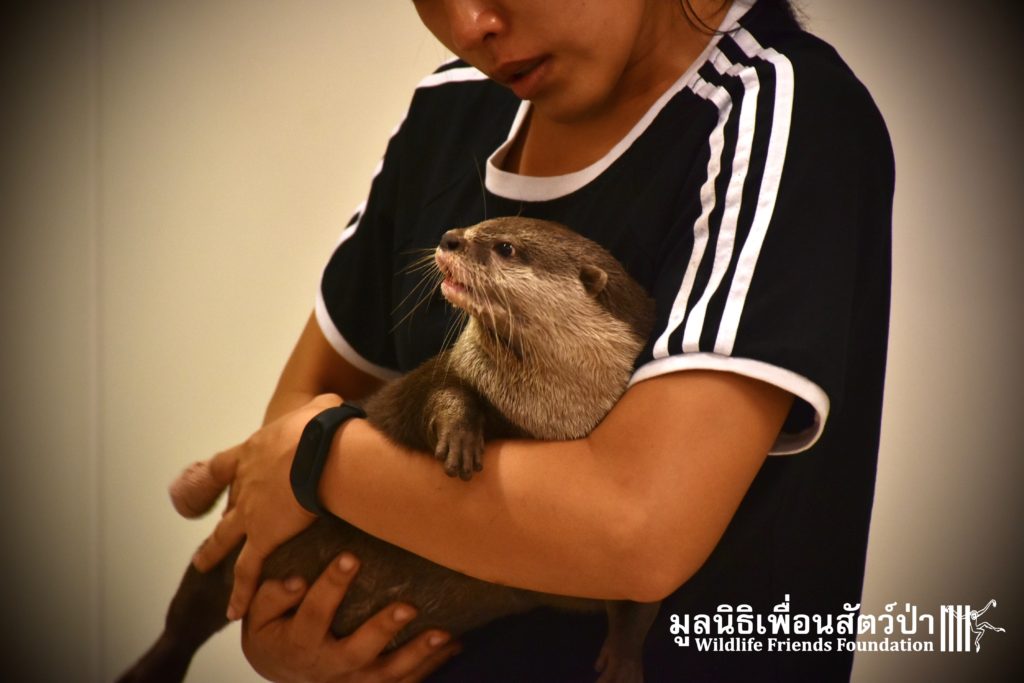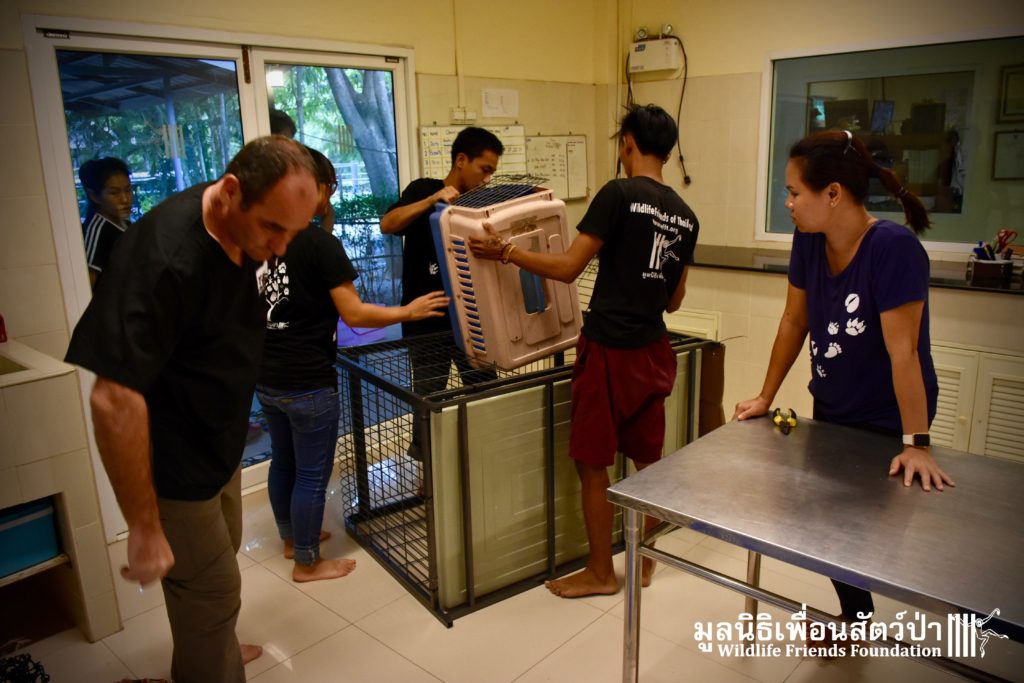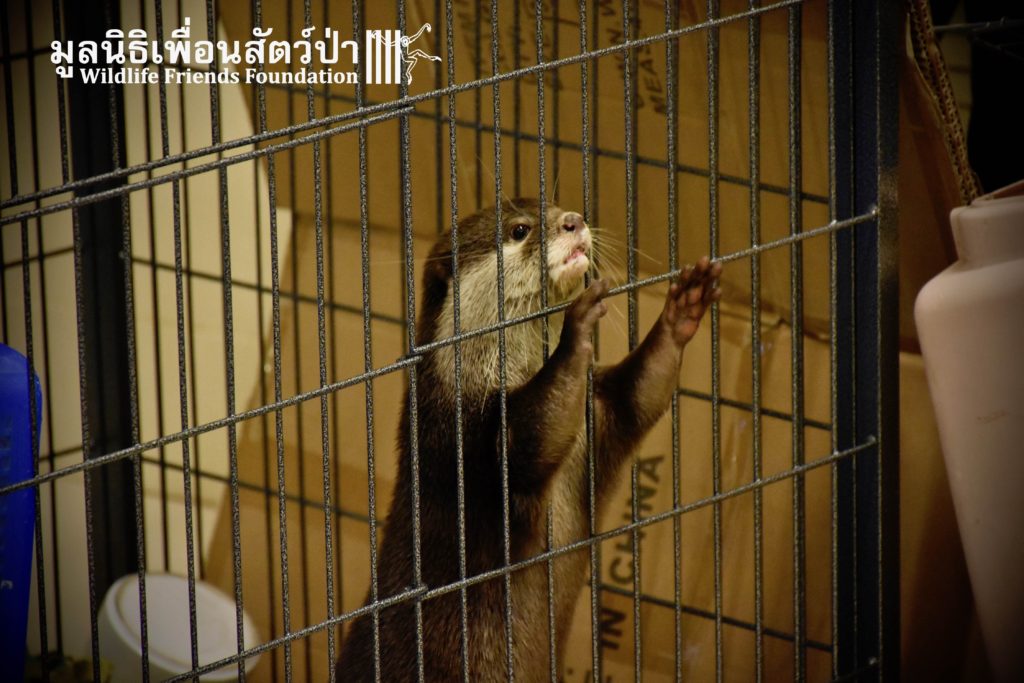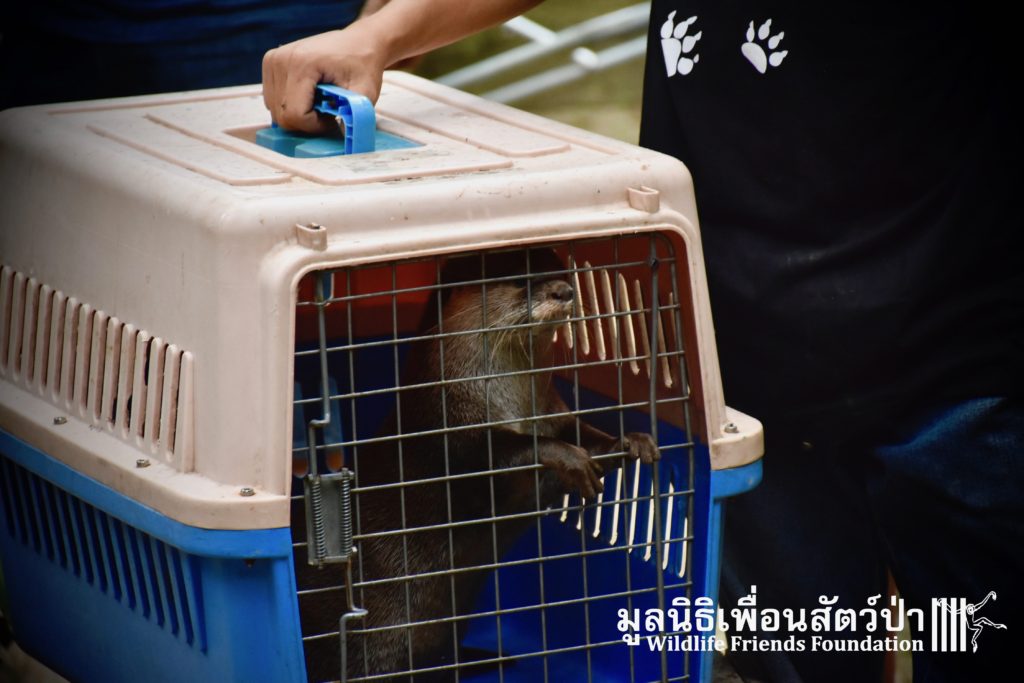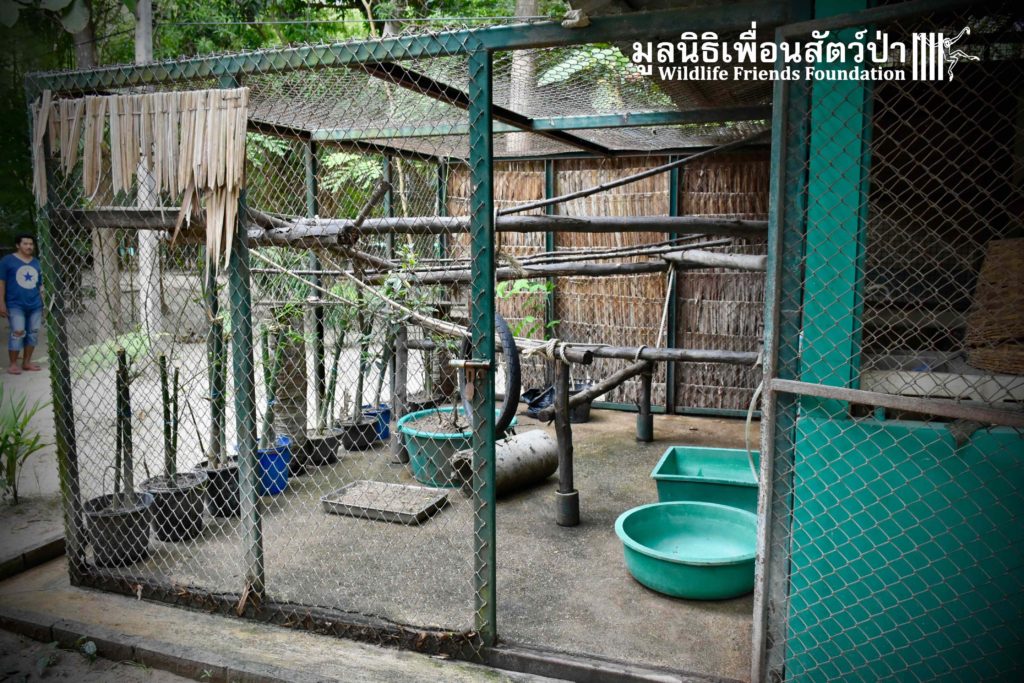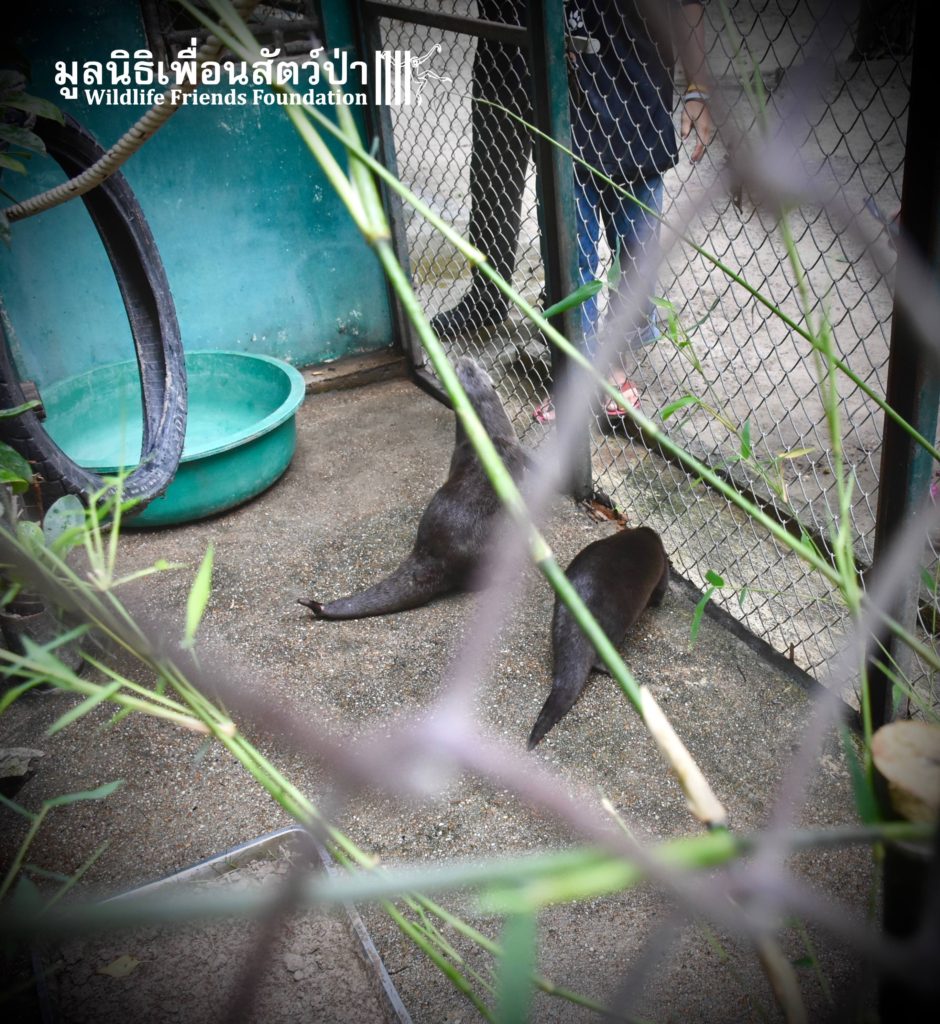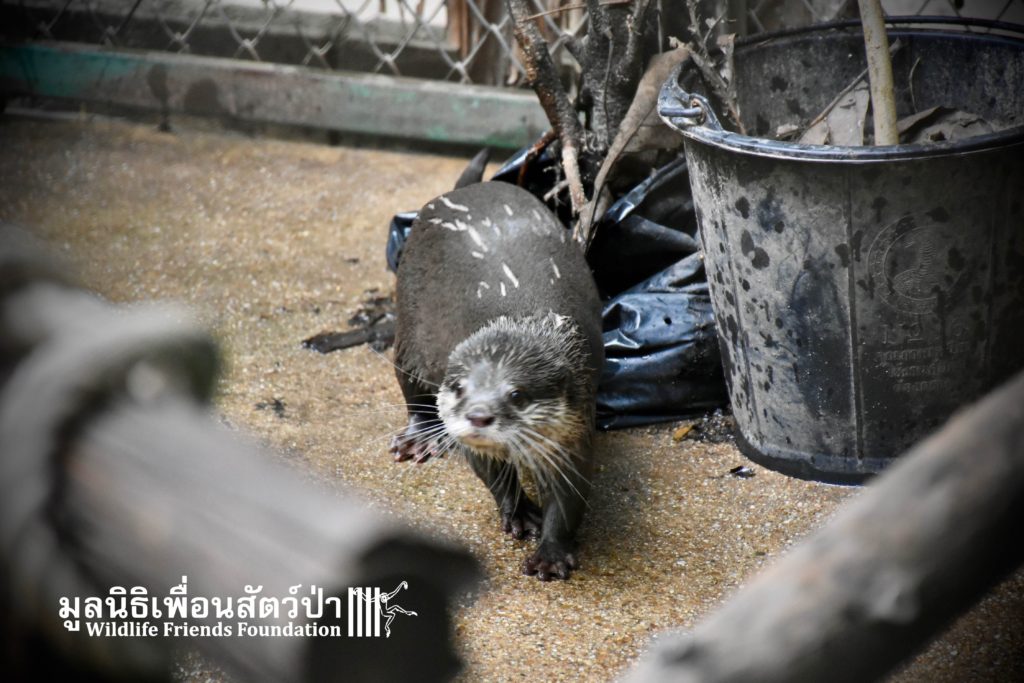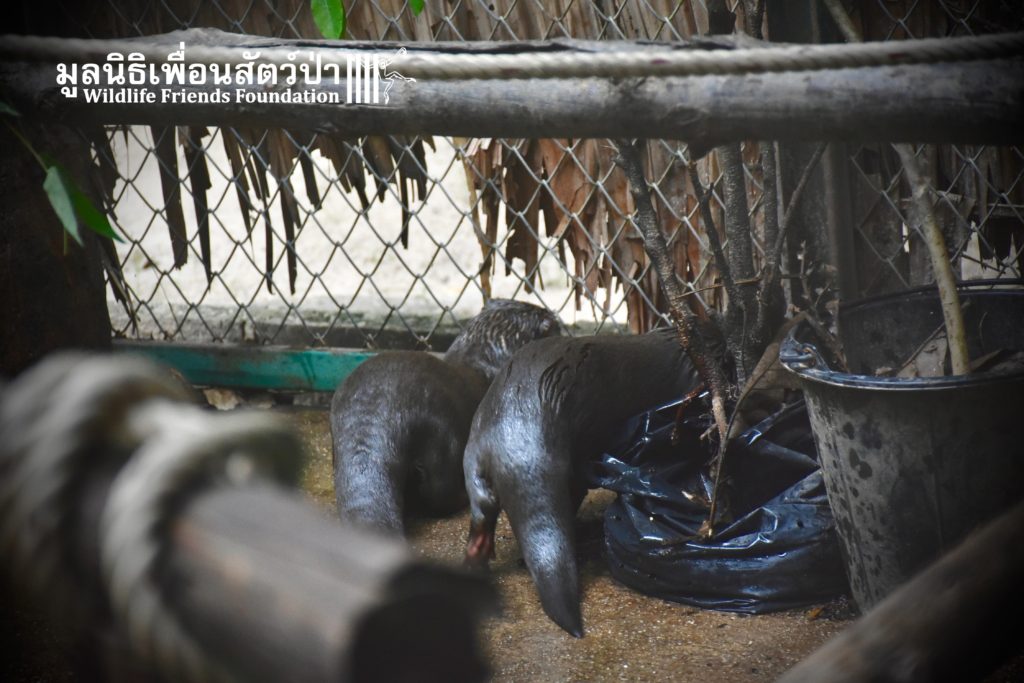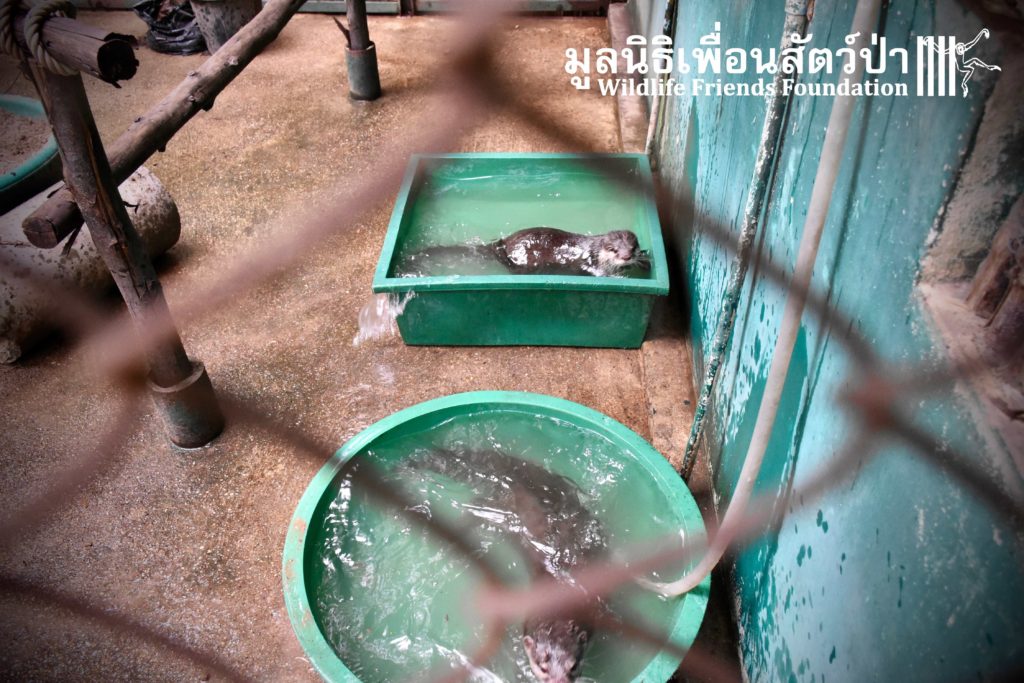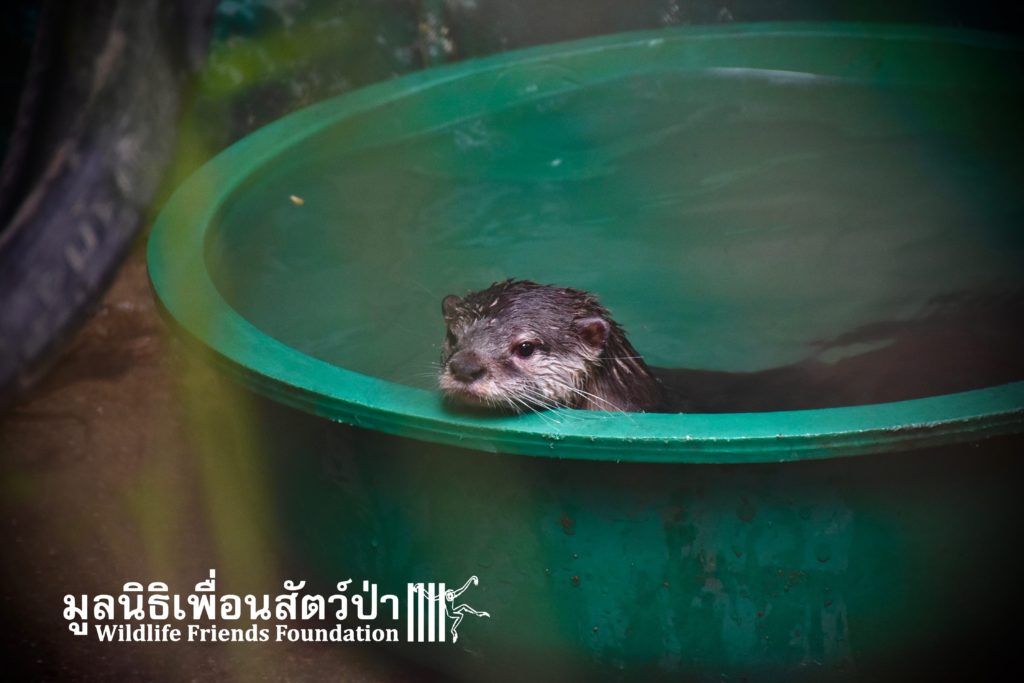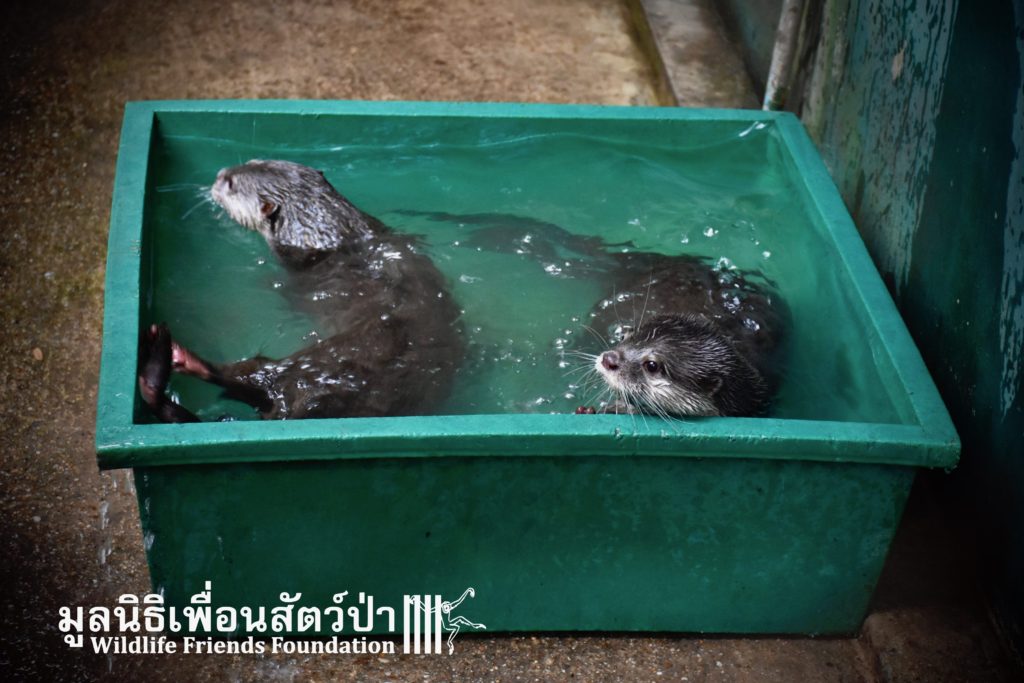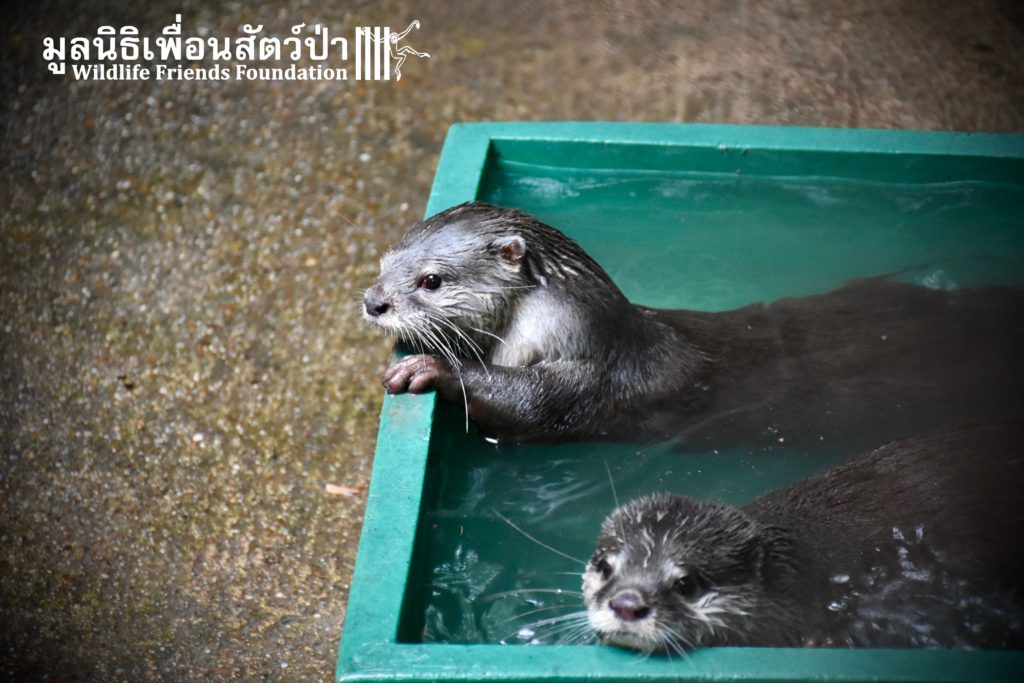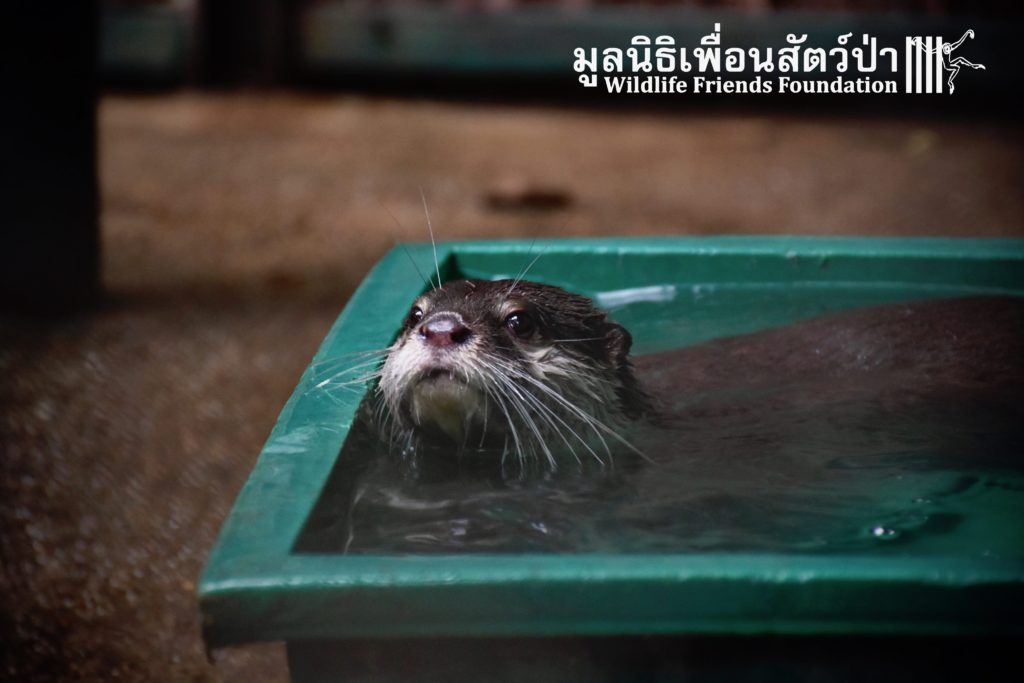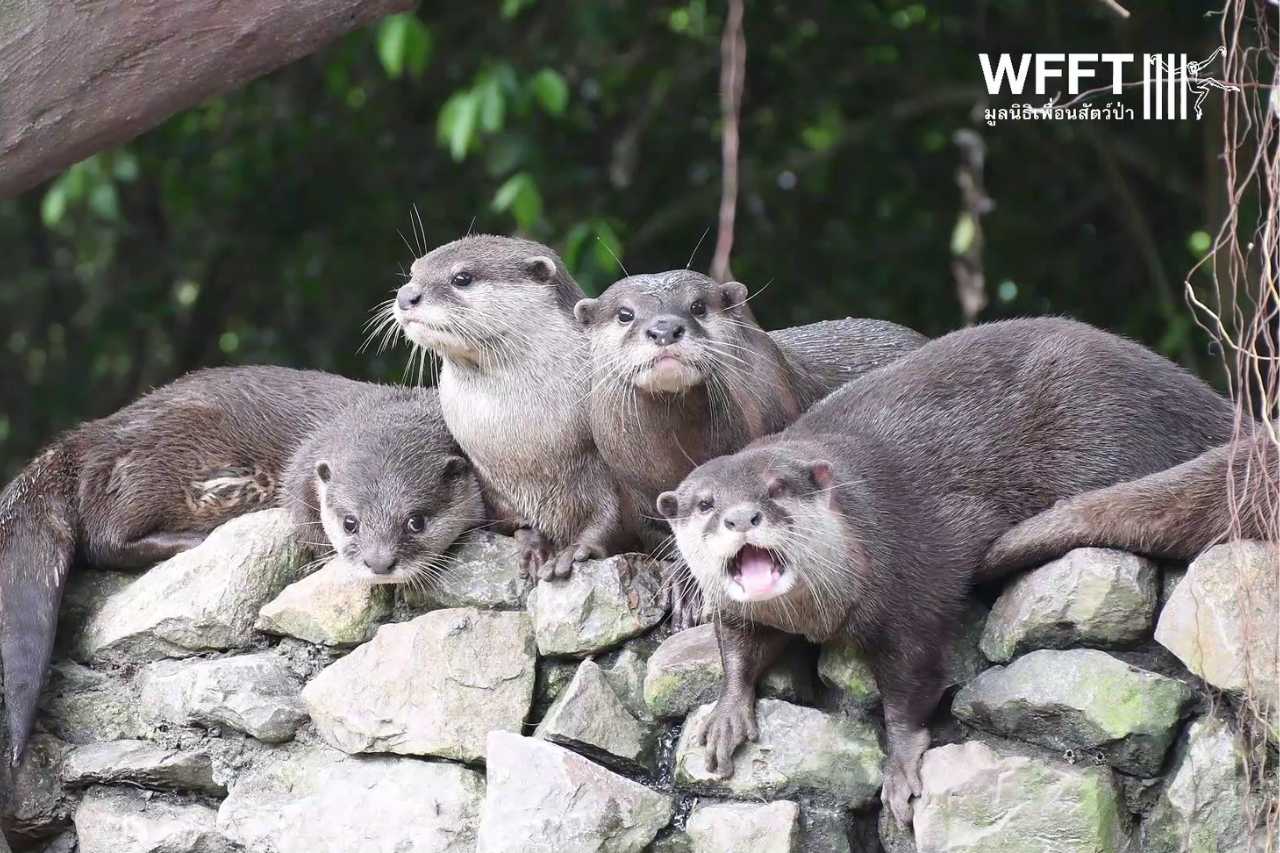Three of the four otter species native to Thailand are either endangered or vulnerable. Watch our World Otter Day 2024 video to learn more.
Welcome to Jubo and Jibi who have joined our growing otter community.
Last Sunday (the 27th of August 2017), a woman brought two small-clawed otters (Amblonyx cinereus) into the WFFT Wildlife Rescue Centre. A male named Jubo, and a female named Jibi. Both are 3 years old. Initially bought through social media by the older brother of the owner, he gave them to his sister because he couldn’t take care of them anymore. A few weeks ago, Jibi, who could not be touched by anyone anymore, bit the woman. The male was not so aggressive but the only person who could approach and take care of him was the owner; thus, because it became unmanageable to keep them she decided after some hesitation to bring them to the center. From what has been observed from their behavior when they arrived, they seem in good health, although they are obese after being fed 6 times per day.
However, as they were stressed on arrival, a more comprehensive health check will be conducted this week.
They seem to be settling in to their new life, after a period of quarantine we hope they can meet other otter residents. We are receiving otters at an alarming rate, and plan to build more enclosures to house them all, this costs money. If you would like to help us create some new otter enclosures please see donation options here https://www.wfft.org/donate/
Sadly, it is not the first time we are talking about otters on this page this month.
Remember, Charlie arrived just 10 days ago (https://www.wfft.org/aquatic-wildlife/wfft-welcomes-charlie-otter/) and we posted a report about the illegal trade a few days ago (https://www.wfft.org/wildlife-general/protection-otters-illegal-pet-trade/).
Oriental small-clawed otters are currently listed as Vulnerable (VU) on the IUCN Red List of Threatened Species. However, the remaining population is hard to estimate. Throughout South Asia, where they are found, the main threat to its continued survival is the destruction of its fresh water habitat, pollution, and the threat posed by poaching, for the fur trade and pet trade. Sadly, an increase in keeping these animals as pets has been seen throughout Thailand. We are hearing reports of otters ‘farms’ where many are being specifically bred for the pet trade.
So, let’s never forget the wild animals belong in the wild!

